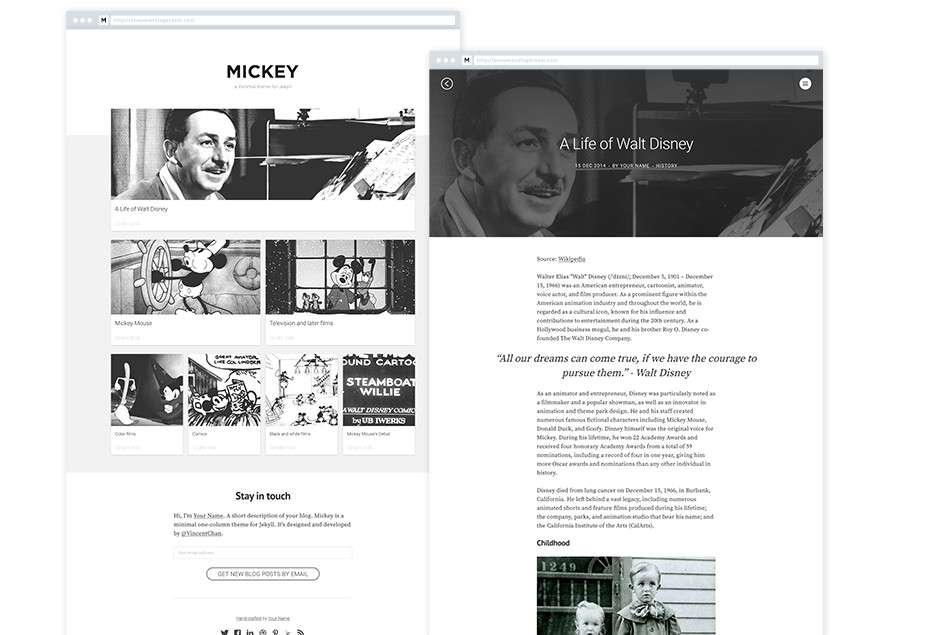Jasper
This is a port of Ghost’s default theme Casper for Jekyll inspired by Kasper.
You might well ask at this point why bother making a new Casper’s clone? Although this is inspired by Kasper, there are several additional features which make this port closer to the original theme. This port is based on the last Casper v1.3.7 (same as v1.4.0 that runs in Ghost 1.0).
New: Check out Jasper2, a new port of Casper version 2!





Jasper theme includes
- Pagination
- Google Analytics tracking
- Author’s profile with picture
- Disqus comments (not Ghost standard)
- Author page (New 07.02.2015)
- Tag page(s) (New 07.02.2015)
- 404 page (New 07.02.2015)
- Toggleable sliding sidebar (New 07.02.2015)
- Related posts view (New 30.10.2015)
- Tag description(s) (New 30.10.2015)
- Code Syntax Highlight (New 24.11.2015)
- Code Syntax Highlight with highlight.js (New 06.04.2016)
- Rss updated to Jekyll v3 (New 06.04.2016)
- Updated to Casper v1.3.7 (New 17.11.2017)
- ‘Out of the box’ support for Multiple Authors (New 17.11.2017)
How to use it
Deployment
Important: For security reasons, Github does not allow plugins (under _plugins/) when deploying with Github Pages. This means:
1) that we need to generate your site locally (more details below) and push the resulting HTML to a Github repository;
2) built the site with travis-ci (with goodies from jekyll-travis) automatically pushing the generated _site/ files to your gh-pages branch. This later approach is the one I am currently using to generate the live demo.
For option 1) simply clone this repository (master branch), and then run bundle exec jekyll serve inside the directory. Upload the resulting _site/ contents to your repository (master branch if uploading as your personal page (username.github.io) or gh-pages branch if uploading as a project page (as for the demo).
For option 2) you will need to set up travis-ci for your personal fork. Briefly all you need then is to change your details in _config.yml so that you can push to your github repo. You will also need to generate a secure key to add to your .travis.yml(you can find more info on how to do it in that file). Also make sure you read the documentation from jekyll-travis. This approach has clear advantages in that you simply push changes to your files and all the html files are generated for you. Also you get to know if everything is still fine with your site builds. Don’t hesitate to contact me if you still have any issues (see below about issue tracking).
Author pages
In order to properly generate author pages you need to rename the field categories in the front matter of every post to match that of your each author username as defined in the _config.yml file. With the latest update, multiple author blogs are now supported out of the box.
Issues and contributing
This install builds well with Ruby v2.4.2 and Jekyll v3.7.4. If you run into any problems please log them on the issue tracker.
Feel free pull-request your patches and fixes.
Looking for Support or Custom Solutions?
We specialize in creating stunning, fully-customized Jekyll websites tailored to your needs.
If you need assistance with setup, customization, or support, don't hesitate to contact us.
CONTACT US